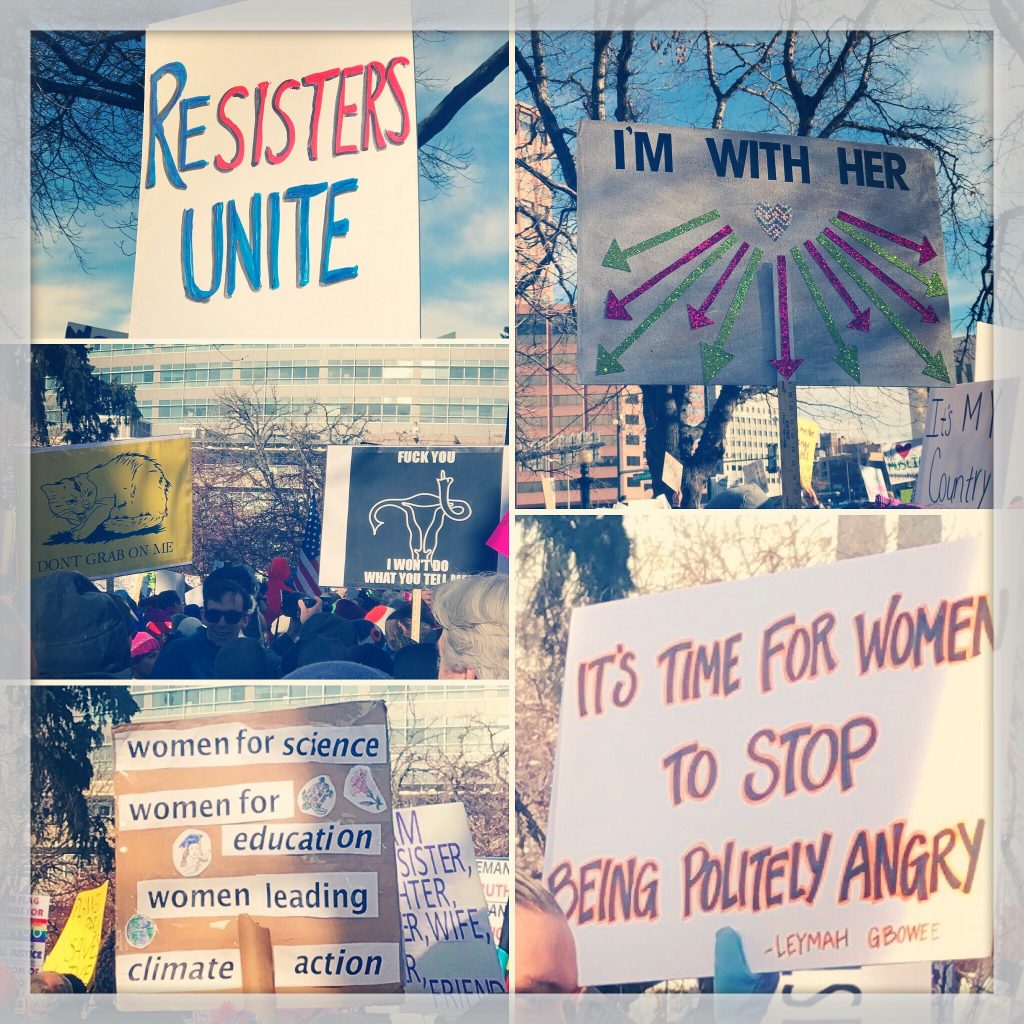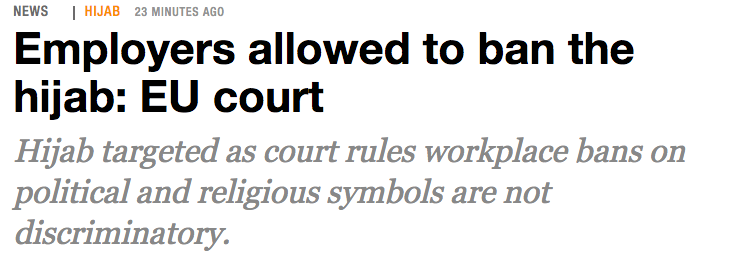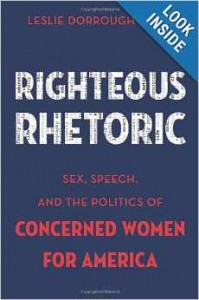
By Andie Alexander
“So are you a political activist now?”
I’m not the kind of person who often posts on Facebook about politics. After all, I’m still a grad student hoping to get a job one day, and there’s no telling what sorts of ideas people could formulate about me based solely on my Facebook posts. With that always in the back of my mind, I tend to keep my posts mostly about the academic study of religion (well, that, and pictures of my dogs, obviously, because they’re adorable). However, over the past few weeks, I have been sharing significantly more news articles and reports on my Facebook page. In the wake of this exponential increase in the number of political articles and photos from the Denver Women’s March (see above) on my page, folks were somewhat surprised with my seemingly sudden interest in politics. So much so that some have even called me a political activist.
When others heard these comments about my newfound activism, some agreed in a positive way, while others maintained that I was not a political activist and that I was just sharing information. However, what struck me about these comments was not whether I really am/am not a political activist — to me that misses the point. Rather, I am more interested in this label or designation of “political activist.” For the more I thought about it, I realized that this identifier rarely has a positive connotation. Continue reading “The Politics of Activism: On Rhetoric and Power”



 Over the last week, many have written about the labeling of ISIS as religious or not, as Islamic or not, both in response to last week’s summit on
Over the last week, many have written about the labeling of ISIS as religious or not, as Islamic or not, both in response to last week’s summit on  While I was searching the web for tradition-related articles, I came across this news story written by John Laughland (a British civil engineer) who submitted an article to a Greek e-newspaper—“protothemanews.com”—entitled “
While I was searching the web for tradition-related articles, I came across this news story written by John Laughland (a British civil engineer) who submitted an article to a Greek e-newspaper—“protothemanews.com”—entitled “ Katie Lofton’s recent review essay of
Katie Lofton’s recent review essay of 